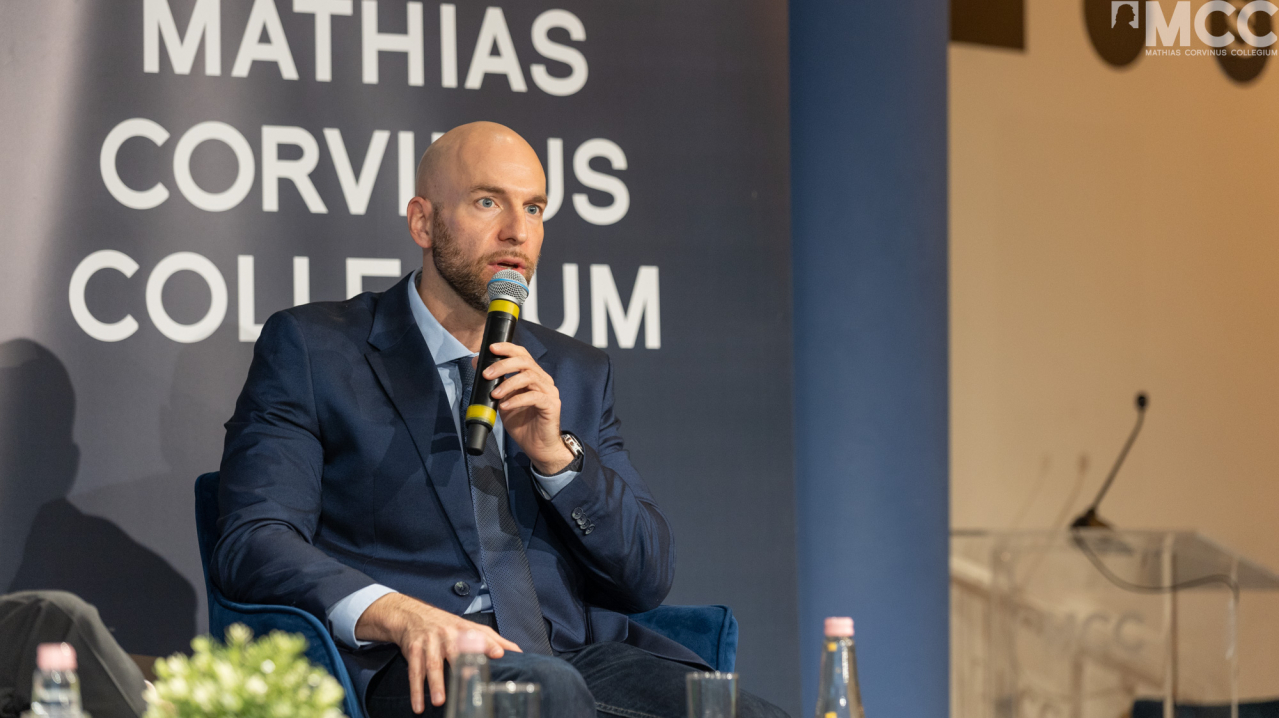The "Center for Applied History and International Relations Theory" at the Mathias Corvinus Collegium (MCC) is designed to cultivate a learning environment for graduate and undergraduate students at the School of International Relations.
By integrating elements from history, psychology, economics, and political science, the Center aims to transcend ideological constraints and allow students to see the world in the most realist terms possible. The core belief underlying the Center's establishment is that effective diplomacy and historical analysis require a multi-disciplinary synthesis free from the confines of prevailing ideologies. While history and ideology inform the foreign and domestic policy of every state, the analysis of them should be as independent from ideological biases as possible.
The Center intends to shape a new generation of skilled diplomats and international relations practitioners. Its core objectives focus on empowering students through a combination of theoretical foundations and applied learning experiences. Central to the educational approach are simulations and strategy games, which allow students to engage deeply with the complexities of international relations. This hands-on learning will be complemented by a rigorous examination of foundational theories across various academic fields, enhancing students’ analytical skills and strategic thinking.
A key component of the Center’s mission is the incorporation of a strictly realist perspective on international relations. In light of the recent erosion of strategic thinking in the West—often replaced with wishful thinking—the Center aims to provide students with the tools and frameworks for evaluating global interactions as they truly exist. By focusing on the implications of historical contexts shaping national interests, the Center seeks to prepare its graduates to navigate current geopolitical challenges effectively.
The curriculum will feature classical and contemporary texts, including works such as "The End of History and the Last Man" by Francis Fukuyama, "The Righteous Mind" by Jonathan Haidt, and "Basic Economics" by Thomas Sowell. These readings will provide a diverse foundation for students to engage critically with complex ideas central to diplomacy and international relations.
Additionally, the Center recognizes the value of contemporary thought leaders and intends to incorporate insights from influential Substack authors, enhancing the academic experience with current debates in economics, politics, and social discourse. Authors like Doomberg, Ryan Grim, and others will offer students modern perspectives on issues that directly impact diplomacy and policy-making.
One innovative feature of the Center is the integration of Grand Strategy board and computer based games. This engagement will allow students to not just learn but experience critical decision-making scenarios and deepen their understanding of diplomatic negotiations and resource management strategies, providing a practical framework for their studies.
By fostering interdisciplinary collaboration and promoting adaptive thinking, the Center aims to prepare students not only to confront the challenges of modern diplomacy but also to influence the future landscape of international relations.

